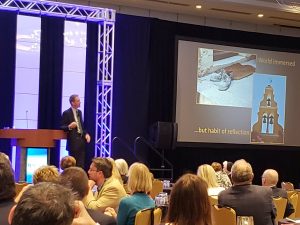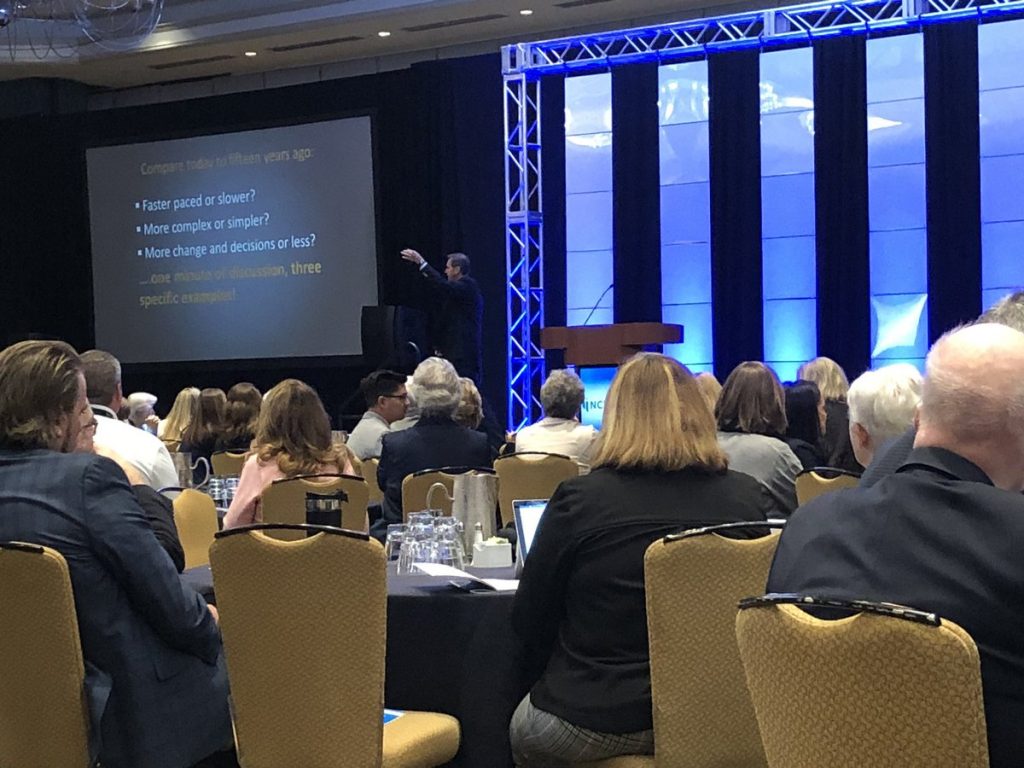NCEA was pleased to present Chris Lowney as keynote speaker for the 2018 Catholic Leadership Summit for diocesan, system and network school leaders. This year’s event, hosted in the Diocese of St. Augustine, welcomes over 380 leaders in Catholic education focused on the future of Catholic school education.
Mr. Lowney is the current chair of the board of CHI, one of the nation’s largest healthcare/hospital systems with more than 100 hospitals and nearly $16 billion in annual revenues. He is a one-time Jesuit seminarian; he later served as a Managing Director of J.P. Morgan & Co on three continents. He is a popular keynote speaker who has lectured in more than two-dozen countries, on leadership, business ethics, decision-making and other topics.
 Drawing upon two decades of change-management experiences and the leadership lessons clean from the life of Pope Francis, Lowney proposed an EASTeR strategy of five transformational principles: be entrepreneurial, be accountable, serve, transform, and reach out to inspire change in our schools, diocese and The Church.
Drawing upon two decades of change-management experiences and the leadership lessons clean from the life of Pope Francis, Lowney proposed an EASTeR strategy of five transformational principles: be entrepreneurial, be accountable, serve, transform, and reach out to inspire change in our schools, diocese and The Church.
Lowney started his remarks by quoting Pope Francis: “We cannot simply wait for what we are experiencing to pass, under the illusion that things will return to being how they were before.”
To the group of Catholic school leaders, he emphasized that “we may need to acknowledge that our current playing field is where the Holy Spirit has placed us,” and challenged the audience to consider this as a time for a new culture of leadership. A culture in which:
- Everyone leads;
- Develops better leadership skills;
- Holds a “one team” mindset focused on generating solutions;
- Is entrepreneurial;
- Reaches out;
- Is nourished by prayers; and
- Is courageous yet humble.
The session continued to address how we, as Catholic school leaders, can meet this challenge in today’s climate. He helped the group begin to think about leadership on a personal level and “point the way” by example.
The presentation was punctuated by discussion from the audience and set the stage for the focus of the remainder of the CLS gathering that focused on the dynamics of disaffiliation among young Catholics, a continued discussion of NCEA and FADICA’s market research data exploring perceptions of Catholic education from parents today, and other leadership development sessions identifying the greatest opportunities to improving and promoting Catholic schools.
